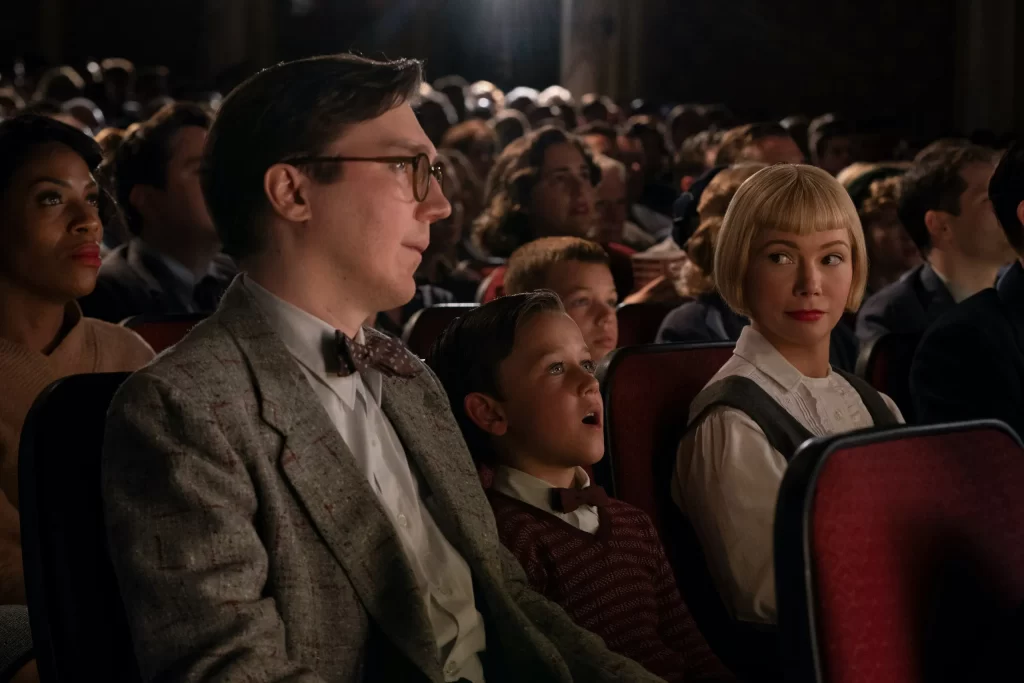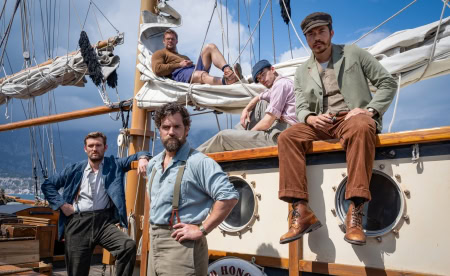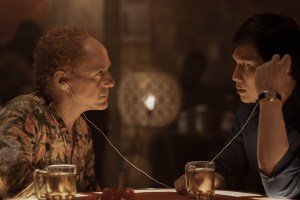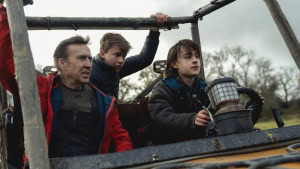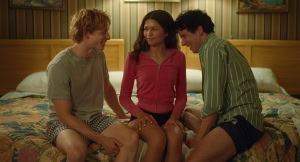Steven Spielberg’s films have always felt personal. You don’t become a childhood-defining filmmaker for multiple generations of working storytellers without striking a chord or two. His stories feel universal, his characters feel attainable and honest. Whatever Spielberg brought to them from his own experiences was texture, a spirit to imbue into the film’s events without putting a direct mirror to them. Spielberg’s family got divorced––that isn’t required to enjoy E.T. or Catch Me If You Can, but it sure does explain why those divorces feel as authentic as they do.
He never needed to lay himself bare in order to resonate with people, yet that is exactly what he does with The Fabelmans, a touching ode to cinema that is nakedly autobiographical to the point of memoir. Numerous TIFF-goers were ecstatic to get a magical glimpse into the life of the world’s most well-known filmmaker, but it begs the question: what does this film have without Spielberg’s name attached to it?
Some would argue he is inseparable from the film, that knowledge of him and his legacy is tantamount to the very fabric of the film itself. This perspective is not without merit: it’s almost impossible to dislike the film due to its painful honesty as a document. Spielberg reckons with a heartbreaking divorce, antisemitic bullying, first heartbreak, career burnout, et. al. You have to admire the man for setting himself up to be looked at under a microscope.
But as each scene passes by you without so much as a spark of conflict or ingenuity, as you watch Spielberg inspire so little of the grandeur that has defined his image-making sensibilities for years, it becomes increasingly clear that this is a limp cinematic experiment that would never work without its core element. Generically sentimental and visually spineless, what should have been the director’s most cinematic opus yet winds up lacking the very cinematic qualities that cemented him as one of the greatest living filmmakers.
The film starts off strong as we witness Sammy Fabelman (portrayed in his younger years by Mateo Zoryon Francis-DeFord), Spielberg’s insert, watch a movie for the very first time. The train crash sequence from The Greatest Show on Earth, a 1952 DeMille staple, inspires Sammy’s parents, Burt and Mitzi (a bland Paul Dano and an oscar-baiting Michelle Williams) to buy him a train set. But it quickly becomes clear that Sammy isn’t really interested in the trains––he’s interested in making them crash, in recreating the astonishment he witnessed. Mitzi gives him a film camera, and the rest is history.
In these opening moments, Spielberg captures the wonder in his own origins. Even with the film’s minimalist color palette, watching Sammy project his first film onto his palms is the kind of on-the-nose symbolism that Spielberg fans crave. However, as Sammy grows up (transitioning to Gabriel LaBelle in an inspired breakout performance), the images become less and less frequent as his naivete diminishes. Spielberg grounds his coverage of film shoots and family confrontations with little meaning to muster beyond his actors’ performances. If you had told a less-informed viewer that this is the same filmmaker who captured West Side Story with such fire and beauty just one year prior, I’m not sure they would have believed you.
There are still stand-out moments, but even those feel thin. After footage of a camping trip reveals a shocking revelation regarding his family ties, or lack thereof, Sammy is left devastated. The tools that have previously brought him his greatest joys have now unlocked his deepest sorrow. Shots are long and the score is dour (this is maybe one of the tamest scores in Williams’ illustrious career), but Spielberg insists on dragging the moment further with Mitzi’s own revelatory scene. The moment is repeated and to little additional effect, at least visually.
It’s hard to be upset though, as Williams is compelling in the role, and many of the actors Spielberg has assembled are used to excellent effect. Dano and Seth Rogen, as “Uncle” Benny, don’t leave much of an impression, but hilarious cameo appearances from Judd Hirsch and David Lynch make up for it. Hirsch’s monologue in particular gives the film much needed resonance, the legendary actor portraying a distant uncle and former stagehand who inspires Sammy while also giving him a much needed reality check. “Family, art, life. It will tear you in two.” This is what Spielberg is mostly concerned with throughout the back half of the film: that the film camera heightens reality while still capturing truth, and how this can affect the subjects we spotlight.
It’s one of the greatest paradoxes of the medium, but as the film progresses, it starts to become unclear what Spielberg wants to say about it. As one scene contradicts another in terms of ideas and intention, Spielberg seems satisfied leaving the audience to reckon with a confusing portrayal of this dichotomy. To believe such disparate commentary would come from a filmmaker whose use of the medium has always been a source of joy and inspiration is confounding, if not disappointing.
This was undoubtedly an essential film for Spielberg to create, and it should have been a momentous culmination of everything that has come before it. Instead, it feels like the equivalent of a sloppily tangential anecdote: the intentions are there and the passion is evident, but it takes far too long for the pieces to come together and I’m left with too many questions by the end. Still, it is an anecdote from Spielberg, so we’re all going to listen intently either way.
The Fabelmans had its World Premiere in the Special Presentations section of Toronto International Film Film Festival 2022. The film will debut in select theaters November 11, everywhere on November 23, 2022 courtesy of Universal Pictures.
Director: Steven Spielberg
Writer: Steven Spielberg, Tony Kushner
Rated: PG-13
Runtime: 151 minutes
As touching and funny as it may be, "The Fabelmans" is a visually spineless entry into Spielberg's filmography that lacks conflict and truth.
-
GVN Rating 5
-
User Ratings (0 Votes)
0

Larry Fried is a filmmaker, writer, and podcaster based in New Jersey. He is the host and creator of the podcast “My Favorite Movie is…,” a podcast dedicated to helping filmmakers make somebody’s next favorite movie. He is also the Visual Content Manager for Special Olympics New Jersey, an organization dedicated to competition and training opportunities for athletes with intellectual disabilities across the Garden State.


